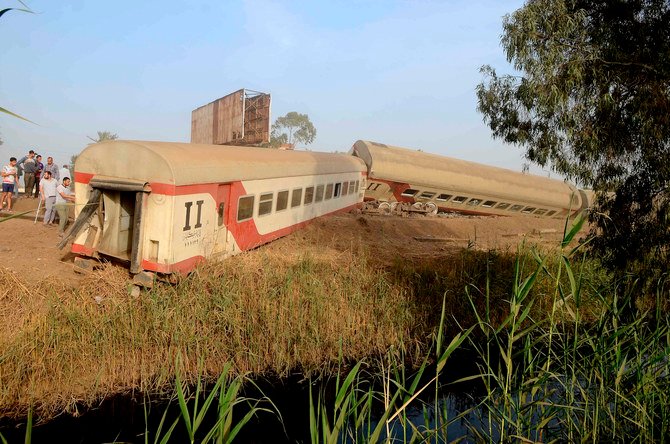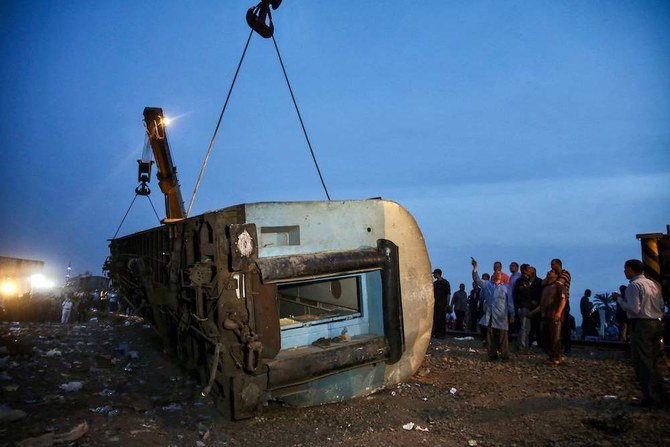CAIRO: Egypt’s transportation minister on Tuesday said he sacked the country’s top railway official, following three train accidents in less than a month that left at least 29 people dead and some 320 injured.
The firing of Asharf Raslan, head of the railway authority, was part of a wide ranging overhaul of the rundown railway system's leadership amid public outcry over repeated train crashes.
Raslan, who headed the railway authority since July 2018, was replaced Mustafa Abuel-Makarm, the office of Transportation Minister Kamal el-Wazir said in a statement.
The changes included the main departments of the railway authority that manages train traffic in the Arab world’s most populous country.
READ MORE
At least 11 people were killed and nearly 100 injured in a train accident in Egypt on Sunday. Click here for more.
The overhaul was designed to “inject a number of competent professionals” amid efforts to upgrade the poorly-maintained network.
The changes came after a passenger train derailed Sunday north of Cairo, killing at least 11 people and injuring at least 98 others. That followed another train crash in the Nile Delta province of Sharqia last week that left 15 people wounded.
After Sunday’s crash, President Abdel Fattah el-Sissi announced the establishment of an official commission to investigate its causes. Prosecutors also launched their own probe.
On March 25, two passenger trains collided in the southern province of Sohag, killing at least 18 people and injuring 200 others, including children. Prosecutors blamed gross negligence by railway employees for that crash.
The country’s railway system, one of the world's oldest, has a history of badly maintained equipment and poor management.
READ MORE
Saudi Arabia said on Sunday it expresses its deep sorrow for the train accident north of the Egyptian capital Cairo. Click here for more.
The government says it has launched a broad renovation and modernization initiative, buying train cars and other equipment from European and U.S. manufacturers to automate the system and develop a domestic railcar industry.
El-Sissi said in March 2018 that the government needs about 250 billion Egyptian pounds, or $14.1 billion, to overhaul the run-down rail system.
Hundreds of train accidents are reported every year. In February 2019 an unmanned locomotive slammed into a barrier inside Cairo’s main Ramses railway station, causing a huge explosion and a fire that killed at least 25 people. That crash prompted the then-transportation minister to resign.
In August 2017, two passenger trains collided just outside the Mediterranean port city of Alexandria, killing 43 people. In 2016, at least 51 people were killed when two commuter trains collided near Cairo.
Egypt’s deadliest train crash was in 2002, when over 300 people were killed after a fire broke out in an overnight train traveling from Cairo to southern Egypt.





























